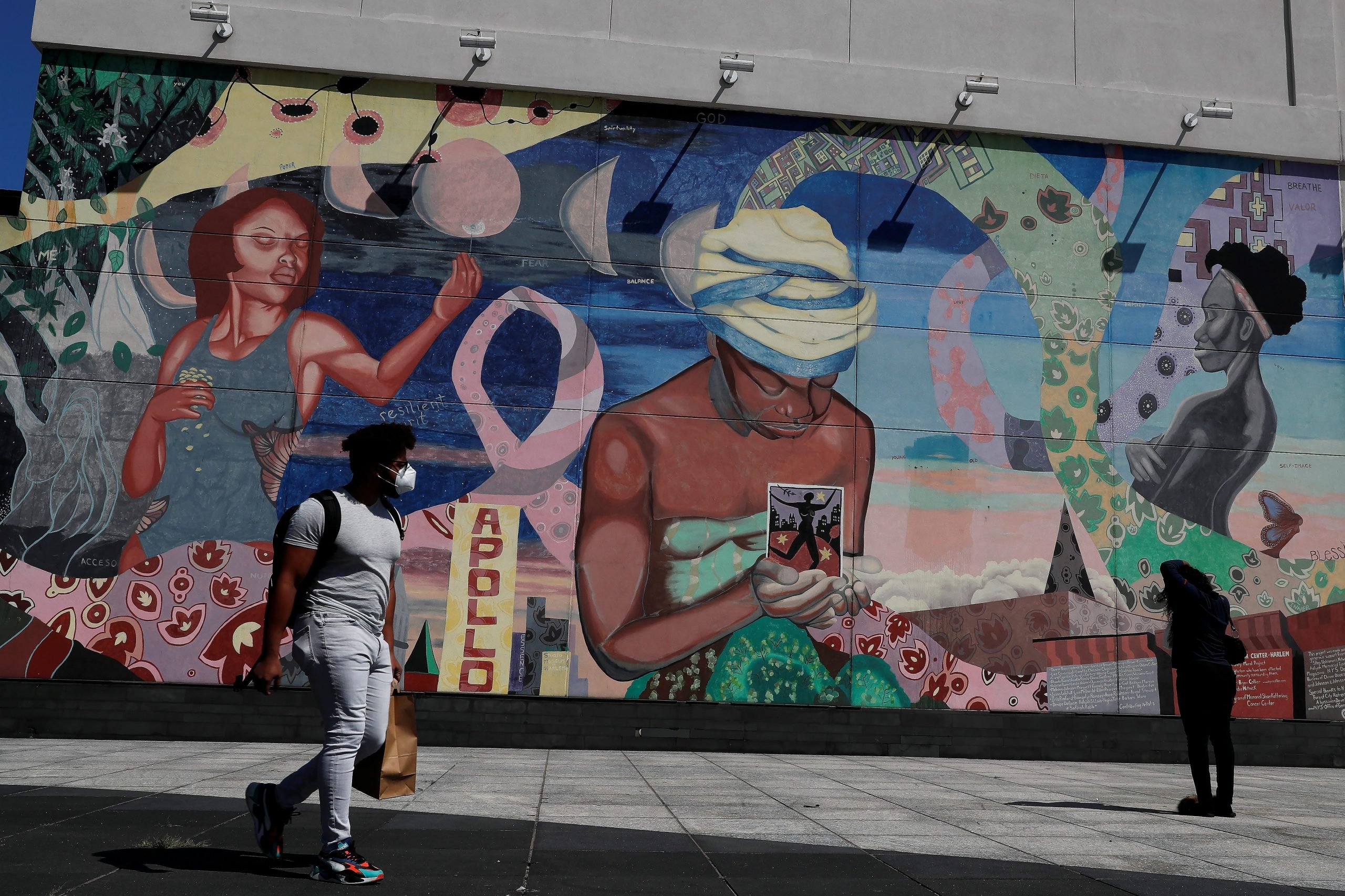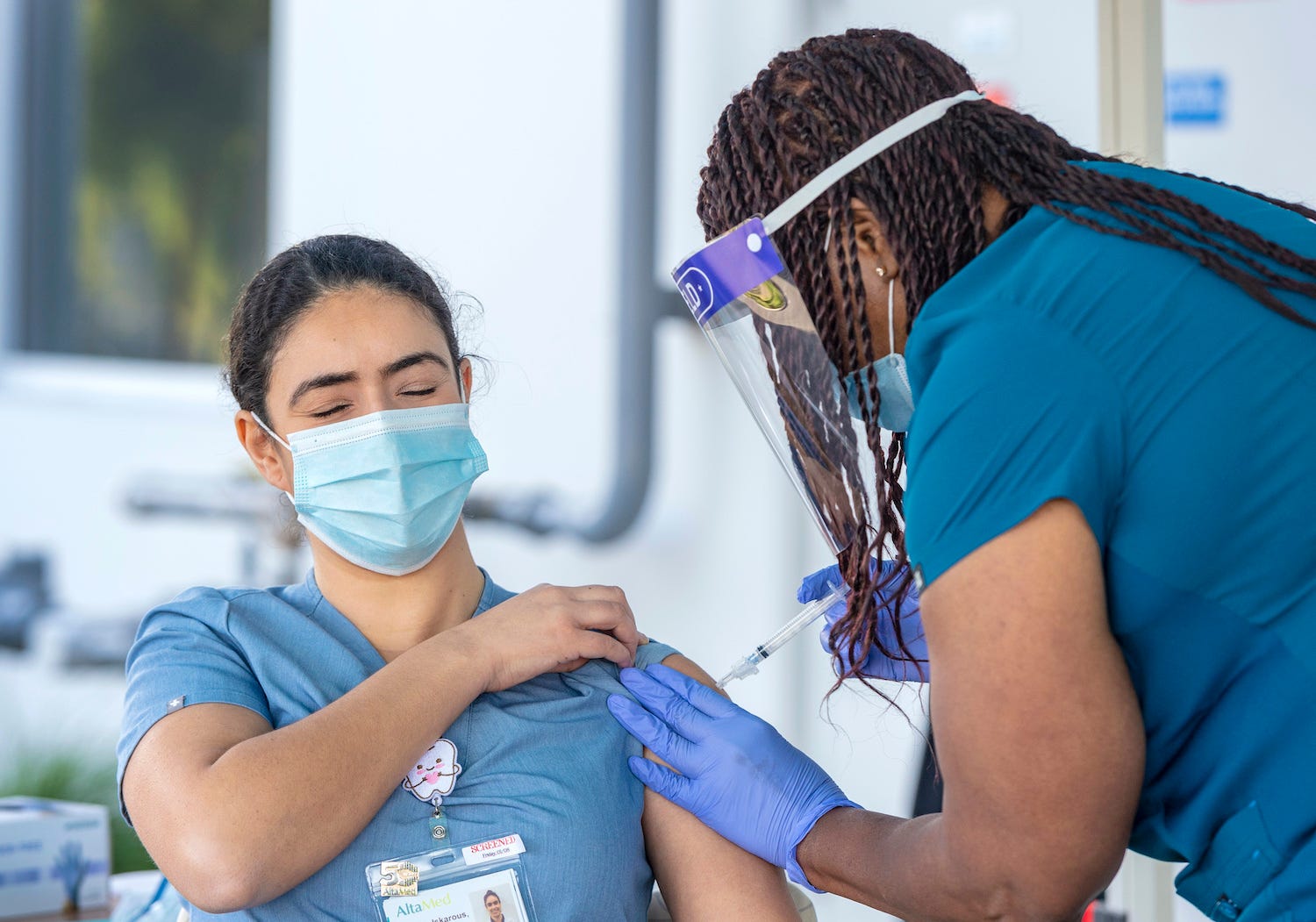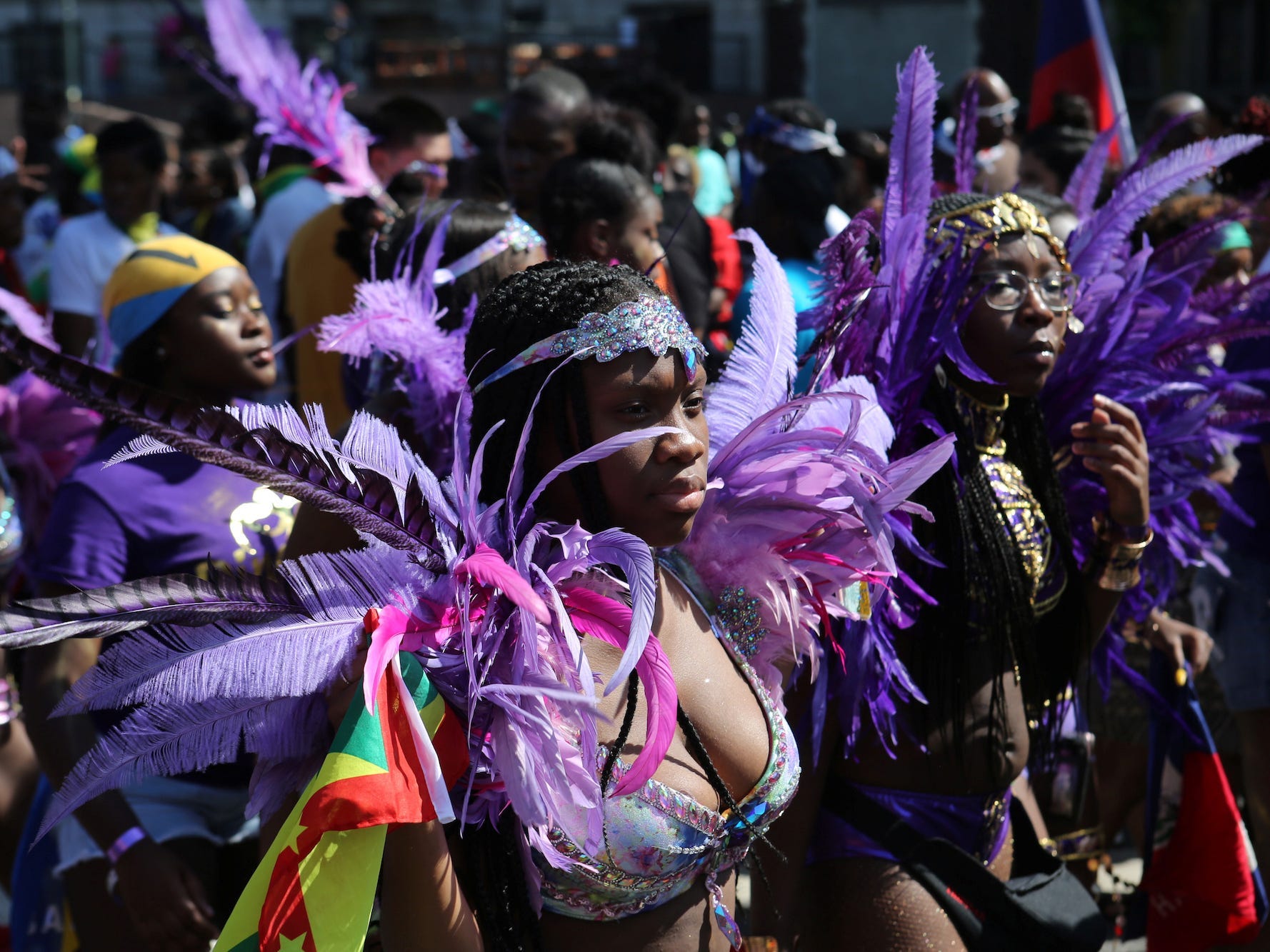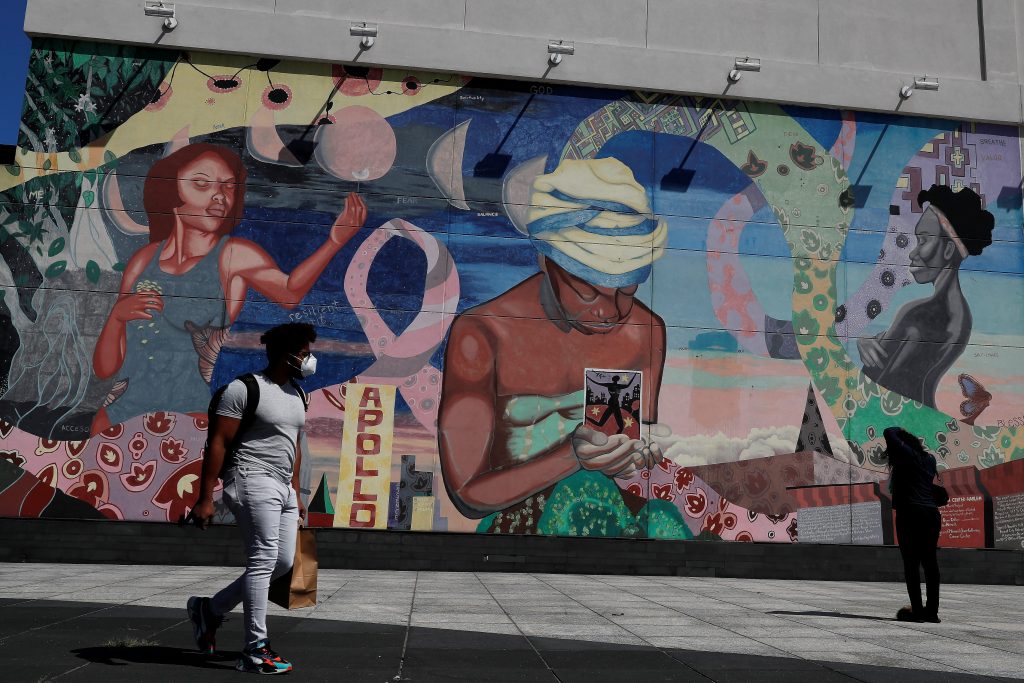
Reuters
- The Covid-19 pandemic decimated Caribbean American communities in the US.
- Communities in the largest diasporas united to help with health, economic, and cultural recovery.
- Leaders, activists and artists across the US Caribbean diaspora came together to help communities.
- See more stories on Insider's business page.
Since the COVID-19 pandemic first began nearly two years ago, it exposed sharp disparities related to poverty, access to healthcare, and overall quality of life that one time left Black Americans more than three times more likely to die from the virus.
"We carry a higher burden of chronic disease that predisposes us to the more serious complications of coronavirus," Uché Blackstock, a physician who works in Brooklyn told the Washington post. "We don't have access to care and if we do it's likely that care is of worst quality because they are often termed minority-serving."
While part of the larger contingent of Black Americans, for many Caribbean American communities in the US, their unique impact But for many, the unique
A New York City Health Department map showing the virus' early spread confirmed neighborhoods with a high concentration of Caribbean-Americans in the city's Brooklyn, Queens, Bronx boroughs were among the areas most affected by COVID-19.
Now, as states reopen and communities are tasked with rebuilding, Caribbean diasporas across the country told Insider their unity behind their shared cultural identity is key to their sociopolitical, health, economic recovery.
Many Caribbean American diasporas were in coronavirus hotspots

mark Rightmire/Getty Images
Most Caribbean immigrants and first generation Americans reside in New York state and Florida according to 2017 data from the Migration Policy Institute - accounting for 63% of the entire Caribbean population in the US.
Data from the US Bureau of Labor Statistics shows that Black people hold many of the jobs in the taxi service industry, the foodservice industry, as well as the hotel industry. Many immigrants, including Caribbean immigrants, also work in the healthcare industry - the very frontline workers that have been caring for the nation during the pandemic.
A report from the Migration Policy Institute also shows that more than 2.6 million immigrants were employed as healthcare workers as of 2018. They account for 18% of healthcare workers in the US.
That meant when the public was asked to stay at home to flatten the curve, it was immigrant communities and Black and brown Americans who largely kept the country running.
But advocates note that in polling and surveys, Caribbean Americans are often lumped together with African Americans and that can make it difficult to campaign for their unique needs as a community culturally, politically, and economically.
In 2020, the US Census Bureau released a new questionnaire that included the option for people to note their country of origin, which will help differentiate Caribbean Americans from African Americans.
"Twenty percent of New York, New Yorkers are of Caribbean descent so it's very important that we're seen," Shelley Worrell the founder and chief curator of caribBeing, told NY1.
The cultural advocacy group cautioned that impact came at a cost to the community as the coronavirus spread.
As evictions skyrocketed and joblessness grew, Worrell jumped into gear serving hot meals to frontline workers at two hospitals, including facilities that primarily serve the city's Caribbean population in Brooklyn.
Many Black-owned businesses, already severely impacted by disparities in access to federal aid, were forced to close altogether or struggled to stay afloat. Among those, Worrell focused efforts on the Caribbean business community federal and state aid can overlook.
caribBeing's directory of Caribbean businesses then served as a one-stop-shop to support local businesses right as a public campaign to support Black-owned businesses gained steam following the killing of George Floyd in June.
"We were able to really try to amplify the Caribbean businesses in our neighborhoods to drive traffic and media attention to the community," Worrell said.
In South Florida, where the Caribbean diaspora is 21%, drawing attention to community resources was just as much a public health and cultural necessity as an economic one.
Black Americans, including Caribbean Americans, are familiar with the country's history of medical exploitation which leaves room for misinformation to propagate.
With misinformation about the coronavirus and the vaccine has been spreading in the community, Miami-based attorney Marlon Hill focused primarily on ensuring the people are efficiently educated about what's happening throughout the pandemic, as well as facilitating mental health and wellness of the community.
"With the assistance of the Caribbean medical professional community, we have conducted a number of webinars to dispel myths about COVID-19 vaccines and the ongoing pandemic," he told Insider in an email.
But Hill told Insider keeping the community culturally connect is as vital as medically informed. South Florida's annual Caribbean carnival was cancelled last October, putting the final nail in the coffin of a festival tourism season that begins with Trinidad and Tobago's pre-Lenten celebration in February.
Last year's masquerade of colorful costumes in the twin-island Republic is one of few the region, and its diaspora in the US and elsewhere, have seen ever since - devastating a thriving tourism and cultural entertainment scene.
The pandemic devastated communities reliant on culture and entertainment

Joe Penney/Reuters
Entertainers and entrepreneurs took to social media to connect people the best way they know how - music. Ronnie Tomlinson, director of public relations at Destine Media PR, a full-service agency that works with Caribbean artists, told Insider she was happy to see how naturally entertainers came out to support the diaspora.
"Their intention was to relieve the minds of the people," she said. "Just using the music to entertain people. We know they're human, but we also [got to] see that side of them."
Similar to D-Nice's Club Quarantine sessions during the pandemic, DJs including Brooklyn-based Kevin Crown and Tony Matterhorn of Jamaica played live music sets designed to virtually recreate the high-energy fetes that can draw thousands of patrons.
Over time, his shows garnered as many as 5000 viewers per show. Crown told Insider that those music sessions started to help fans, as well as himself.
"I even lost my uncle to COVID so it was just a lot of anxiety every day and as much as [my music] helped people, it helped me cope and gave me a purpose," he said, at the time receiving messages from fans that his performance kept them from the brink."
Advocates say the tireless work to keep the diaspora together during a time of global suffering will only ramp up as states re-open.
Following a pandemic, and racial unrest that saw communities of color targeted, Hill cautioned for political leaders to mitigate some of the socioeconomic and healthcare issues in the community by meeting the community where they are.
"Be more proactive in sharing these messages in a vernacular that the community can understand and also see," he said. "Be more proactive in speaking in our language and in our culture."
